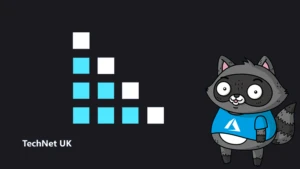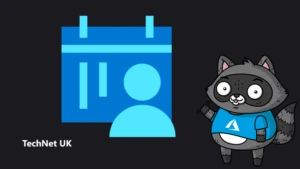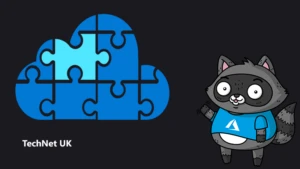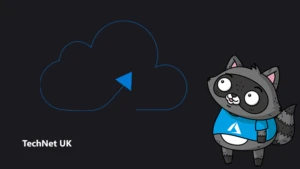
A look at the announcements from Microsoft Build 2020

This year’s digital edition of Microsoft Build has now wrapped up, but don’t worry if you missed it! The high-quality sessions and keynotes from across the two days are available to watch on-demand from the following locations:
- The Session Catalogue on the official Build website
- The Build page on Channel 9
- The Microsoft Developer YouTube channel
Day one brought us many surprises, so just in case you missed it, let’s walk through some of the announcements.
Introducing Azure Synapse Link
A capability that removes the barriers between Azure operational database services and Azure Synapse Analytics, Azure Synapse Link enables customers to get insights from their real-time transactional data stored in their operational databases with a single click, without managing data movement or placing a burden on their operational systems.
With the release of Azure Synapse Analytics last November, the barriers between enterprise data warehousing and big data analytics were removed. That said, there was another barrier that separates operational data from analytical systems. There has never been a simple, low cost, cloud-native Hybrid Transactional/Analytical Processing (“HTAP”) implementation that enables immediate, in-the-moment insights on a business, until today.
Introducing the public preview of Azure Synapse Link, a cloud-native implementation of HTAP which enables customers to get insights from their real-time transactional data stored in their operational databases with a single click, without managing data movement or placing a burden on their operational systems. Azure Synapse Link is now available in Azure Cosmos DB and will be available in our other operational database services such as Azure SQL, Azure Database for PostgreSQL, Azure Database for MySQL and others in the future.
Find more information on the official blog
Code from anywhere with Visual Studio Codespaces
Whether you’re working on a long-term project, a short-lived feature branch, or want to quickly review a pull request, Visual Studio Codespaces can help you be more productive by providing a fully configured development environment in minutes.
With Visual Studio Codespaces now available in public preview, developers can set up fully configured cloud-hosted development environments in just a couple of clicks. Codespaces is also coming to GitHub in private preview, so devs can easily code from any repo.
We’re also releasing:
- .NET 5 Preview 4
- ASP.NET Blazor WebAssembly
- Static Web Apps
- Azure Kubernetes Service (AKS) support for Windows Server containers
- Azure Arc enabled Kubernetes
- Windows Terminal 1.0, the preview of Package Manager and general availability of WSL 2 and WSL2 GPU
Collaborate from anywhere
Developers need the ability to accommodate flexible work schedules and collaborate on their projects, all while keeping their development environment secure. With Visual Studio Live Share and GitHub, developers can collaborate no matter where they are.
With Visual Studio Live Share, developers can create shared coding sessions and co-edit, co-debug applications with their peers securely. Expanded capabilities for Visual Studio Live Share were announced during Build, which include text and voice chat support.
With over 50 million developers, GitHub is the place where developers collaborate. We announced GitHub Discussions, which enables developers to collaborate in new ways.
Ship from anywhere
With more than 30 GitHub Actions for Azure helping our customers create workflows to build, test, package, release and deploy to multiple Azure services. GitHub Actions for Azure are now integrated into Visual Studio Code, Azure CLI and the Azure Portal, and customers can download the new Visual Studio Code extension or install the Azure Command-Line Interface (CLI) extension.
Find more information on the official blog
Responsible Machine Learning
As AI reaches critical momentum across industries and applications, it becomes essential to ensure the safe and responsible use of AI. AI deployments are increasingly impacted by the lack of customer trust in the transparency, accountability, and fairness of these solutions.
In collaboration with the Aether Committee and its working groups, we are bringing the latest research in responsible AI to Azure. New responsible ML capabilities in Azure Machine Learning and our open source toolkits, will empower data scientists and developers to understand machine learning models, protect people and their data, and control the end-to-end machine learning process.
Azure Machine Learning helps you to not only understand model behaviour but assess and mitigate unfairness too, with the following capabilities:
- Model interpretability capabilities in Azure Machine Learning, powered by the InterpretML toolkit, enable devs and data scientists to understand model behaviour and provide model explanations.
- Using Fairlearn, developers and data scientists can leverage specialised algorithms to ensure fairer outcomes for everyone.
Current practices to protect data, such as redacting or masking, are limiting to model development. To address this issue, differential privacy and confidential machine learning techniques can be used to help organisations build solutions while maintaining data privacy and confidentiality. Using the new WhiteNoise differential privacy toolkit with Azure Machine Learning, data science teams can build machine learning solutions that preserve privacy and help prevent re-identification of an individual’s data.
To build responsibly, the ML development process should be repeatable, reliable and stakeholders held accountable. Azure Machine Learning enables decision makers, auditors and everyone in the ML life-cycle to support a responsible process.
Find more information on the official blog
Remote working with Power Platform and Teams
The COVID-19 pandemic upended the operations of companies around the world, forcing many to shift to remote work, often for the first time. Individuals had to quickly adapt to new ways of working, and business leaders have worked to prioritise the well-being of their employees. With Microsoft Teams and Microsoft Power Platform, organisations can quickly adapt business processes and enable workers to collaborate. Today we’re announcing exciting new capabilities that enable businesses and workers to be productive in a remote work world.
We are announcing several new ways to integrate Power Platform with Teams that expand the potential to solve business challenges:
- Power Apps: Build model-driven apps for Microsoft Teams using Power Apps, and bring in pre-existing model-driven apps
- Power Automate: New Power Automate triggers and actions built specifically for Teams to unlock custom message extensions and allow for automated mentioning and customised bot experiences (coming in July)
- Power Virtual Agents:
- New Power Virtual Agents Teams app, coming to the Teams AppStore in July
- One-click Power Virtual Agents bot install in Teams (coming soon)
- FAQ bot template available on GitHub (coming soon)
- Single sign-on for Power Virtual Agents bots (coming in July)
- Power BI:
- Simplified “Share to Teams” feature allows you to quickly select the team and channel to share with directly from Power BI
- Rich thumbnail previews for Power BI charts when pasted into Teams
Find more information on the official blog
Useful Links
- Check out the brand new Microsoft Learn TV!
- Check out the sessions you might have missed in the Session Catalogue
- Follow the conversation on the UK Twitter channels, @MSDevUK and @TechNetUK, as well as on the #MSBuild hashtag!
- How to skill up while stuck at home
- I want to skill up – but what do I learn?




